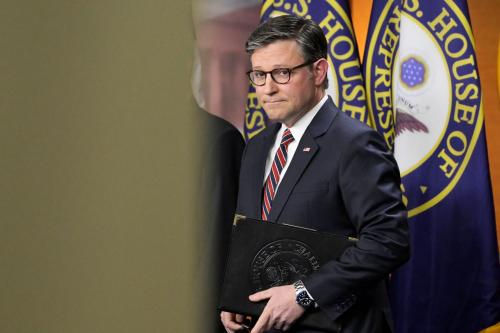The GOP had a very puzzling convention this week. It lost the first day to a possible hurricane, but then made a number of decisions that opened itself up to serious criticism and squandered opportunities. National conventions generally are tightly scripted and operate with ruthless precision in regard to party messaging. Speakers are supposed to focus on the top of the ticket and why their side is better than the opposition.
Yet despite hours of television prime-time, scores of articles in leading news outlets have accused top Republicans of moving into a “post-truth” world where leaders make claims that fact-checkers have labeled misleading or outright false. It is hard to remember another national party convention where presidential and vice-presidential candidates made so many questionable arguments. This includes accusing President Obama of raising taxes on the middle class when he has cut taxes, blaming him for plant shutdowns that occurred during the George W. Bush presidency, and complaining that the chief executive dissed the Simpson-Bowles fiscal commission when the GOP vice presidential nominee himself voted against the group’s recommendations.
If lack of veracity isn’t enough, this was a convention where a last minute speaker (Clint Eastwood) generated more buzz than the nominee himself. In a rambling and apparently unscripted speech in prime-time, the movie star and director made wild charges in addressing an empty chair he called Invisible Obama. This was an out-of-the-box programming choice on the part of Republicans that was problematic both from the standpoint of the message and messenger. Numerous commentators described Eastwood’s appearance as bizarre and out of touch as opposed to helping the GOP make its case against the President.
For much of his campaign, Mitt Romney has fluctuated between moving hard-right to rally his conservative base and appealing to undecided voters by reassuring them he is a nice and competent manager. For the last few weeks, the presidential candidate looked like he had resolved that tension in favor of a tough conservative message focused on the party base. He chose a very conservative vice presidential nominee in Paul Ryan who is the intellectual leader of House Republicans. And together, the two have promised strong leadership that will tackle hard policy choices and give America the tough medicine it needs. Indeed, Ryan set up Romney perfectly in this regard by giving a speech that was visionary and focused on the challenging issues facing the country.
Yet when faced with the biggest platform of the campaign, Romney went soft rather than hard. Rather than lay out his policy vision and explain why he was a superior leader, he used the speech to introduce his background, utter vague platitudes, and avoid the hard choices altogether. There was very little policy substance to the hour-long speech, which robbed the GOP nominee of a valuable opportunity to explain why his vision is better than that of the current incumbent.
The brightest spots in this convention were speeches by the candidate’s wife and a number of rising stars within the Republican party. Addresses by Chris Christie, Marco Rubio, Condoleezza Rice, and others were very compelling. However, many of them spent far more time extolling their own virtues as opposed to those of the Republican ticket. This was a lost opportunity for Republicans to make their case why Romney/Ryan deserve public support, not why certain speakers would make great presidential candidates in 2016.
Republicans had a week in the national spotlight and probably will earn a polling bounce that could move Romney into a small lead nationally. Getting unfettered media time always generates an upward ticket in party support. But Republicans raised as many questions as they answered this week and gave valuable openings to Democrats to explain why truthfulness is important for leadership and why their vision is better than that of the GOP.
The Brookings Institution is committed to quality, independence, and impact.
We are supported by a diverse array of funders. In line with our values and policies, each Brookings publication represents the sole views of its author(s).



Commentary
August 31, 2012